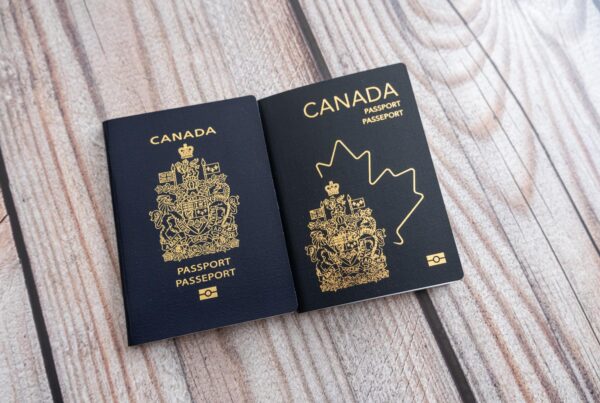Canada plans to welcome over 500,000 new permanent residents in 2025, making it one of the most ambitious immigration targets in the country’s history. Whether you’re a skilled professional, student, or worker seeking new opportunities, the Canada Express Entry system remains the fastest path to Canadian permanent residency.
In fact, Express Entry stands out as the best immigration program in Canada, offering a streamlined process for qualified candidates. As potential immigrants evaluate the best province to immigrate in Canada and navigate through various programs, understanding the latest Express Entry changes becomes crucial for a successful move in 2025.
This comprehensive guide walks you through the updated Express Entry system, helping you maximize your chances of success. From recent policy changes to practical application steps, we cover everything you need to know about immigrating to Canada through Express Entry in 2025.
Understanding Express Entry System Changes for 2025
Significant changes are coming to Canada’s Express Entry system in 2025, reshaping how skilled workers can immigrate to Canada. Specifically, the government is implementing several major updates to streamline the immigration process.
Key updates and policy changes
Starting in spring 2025, Express Entry will undergo a notable transformation. The most significant change is the removal of additional points for job offers 1. Additionally, the system will prioritize candidates already in Canada, with more than 40% of permanent resident admissions in 2025 coming from temporary residents already in the country 2.
New immigration targets and quotas
The government has established clear targets for the upcoming years. The Express Entry-managed programs will see an increase in their share of overall immigration, with Federal High-Skilled programs making up 31.5% of total admissions 3. Furthermore, the plan projects:
- 395,000 permanent resident admissions in 2025
- 380,000 admissions in 2026
- 365,000 admissions in 2027 2
Modified selection criteria
The selection process now focuses on two main streams:
- In-Canada Focus: Allocated 82,890 spots for candidates already in Canada through various programs 3
- Federal Economic Priorities: Reserved 41,700 spots for candidates meeting specific labor market needs 3
The government has designated healthcare occupations, trades positions, and French-language proficiency as priority categories for 2025. Notably, the French-speaking immigration target outside Quebec is set at 8.5% for 2025 3. These changes align with Canada’s commitment to addressing specific labor market needs while supporting demographic goals.
Maximizing Your CRS Score in 2025
Your Comprehensive Ranking System (CRS) score plays a crucial role in determining your chances of receiving an Invitation to Apply (ITA) for permanent residency. Consequently, understanding how to maximize your points is essential for success in 2025.
Strategic ways to improve points
The most impactful way to boost your score is securing a provincial nomination, which adds 600 points to your total 4. Moreover, obtaining a valid job offer can contribute up to 200 additional points 4. Here are the key areas where you can increase your score:
- Enhance your spouse’s qualifications (up to 40 points) 4
- Improve Canadian work experience (valued higher than international experience)
- Secure provincial nomination through eligible streams
- Update education credentials through proper assessment
Language test preparation tips
Language proficiency can earn you up to 260 points for a single candidate or 270 points for couples 5. Particularly for English testing, you have three approved options:
- IELTS General Training
- CELPIP-General
- PTE Core 1
To maximize your language scores, focus on daily practice through English media consumption, conversation practice, and structured test preparation. Notably, test results must be less than 2 years old when you complete your Express Entry profile 1.
Education and work experience optimization
For education points, Canadian credentials earn additional points compared to international qualifications 4. If you studied outside Canada, ensure you obtain an Educational Credential Assessment (ECA) 6.
When calculating work experience, remember these qualifying patterns:
- Full-time at one job: 30 hours weekly for 12 months
- Part-time equivalent: 15 hours weekly for 24 months
- Multiple part-time positions totaling 1,560 hours 6
Remember that Canadian work experience is particularly valuable, as it can earn additional points for up to five years of working in Canada 4.
Step-by-Step Application Process
Initially, creating your Express Entry profile requires careful attention to detail and proper documentation. The process begins with checking your eligibility through the Come to Canada tool or directly through your IRCC secure account 7.
Creating your Express Entry profile
The profile creation process involves these essential steps:
- Complete the eligibility questionnaire
- Gather required documents
- Create IRCC secure account
- Submit profile within 60 days of starting 8
Document preparation checklist
Subsequently, you’ll need these crucial documents:
- Valid passport or travel document
- Language test results (less than 2 years old)
- Educational credentials or assessment report
- Proof of work experience
- Police certificates (if applicable)
- Medical examination results 9
Timeline and processing standards
Generally, processing times vary based on several factors, including application completeness and verification requirements. The standard processing fee is $1,525 CAD for primary applicants and spouses, plus $260 CAD for each dependent child 10.
Notably, after submitting your application, IRCC will:
- Review application completeness
- Request biometrics
- Send status updates through your secure account
- Schedule interviews if needed 11
Accordingly, processing times fluctuate based on:
- Application type and completeness
- Current processing volumes
- Information verification ease
- Response time to additional requests 2
Provincial Nomination Strategies
Provincial Nomination Programs offer a powerful pathway to boost your Express Entry chances. Indeed, obtaining a provincial nomination adds 600 points to your CRS score, essentially guaranteeing an invitation to apply in the next draw 3.
Top PNP streams for Express Entry
Although PNP allocations are decreasing to 55,000 in 2025 12, several provinces maintain robust Express Entry-aligned streams:
- Ontario’s Human Capital Priorities stream
- British Columbia Skills Immigration
- Alberta Express Entry
- Nova Scotia Experience
- Saskatchewan Express Entry 13
Province-specific requirements
Each province sets unique criteria based on their economic needs. Notably, Ontario, Canada’s largest province, issued 9,750 nominations in 2022, distributed across various streams:
| Stream | Nominations |
|---|---|
| Express Entry Skilled Trades | 3,196 |
| Human Capital Priorities | 2,370 |
| Masters Graduate | 1,480 |
| Foreign Worker | 885 |
Application timing and coordination
Nevertheless, timing your PNP application requires careful planning. First, create your Express Entry profile to become visible to provinces 1. Similarly, provinces can send “notifications of interest” to candidates who match their criteria 15.
The nomination process typically takes 3-4 months 16. Once nominated, you’ll likely receive an invitation in the next Express Entry draw, which occurs every two weeks 13.
Remember that provinces develop nomination criteria based on:
- Your ability to become economically established
- Your intention to reside in the nominating province
- Your match with provincial labor market needs 3
Working With an Immigration Team
Canada’s Express Entry system stands ready for significant transformation through 2025, offering expanded opportunities for skilled immigrants worldwide. Though the removal of additional points for job offers marks a notable change, the system maintains its position as the fastest route to Canadian permanent residency.
Success through Express Entry demands careful preparation and strategic planning. Language proficiency, education credentials, and work experience remain crucial factors for a competitive CRS score. Provincial nominations offer an excellent opportunity to secure 600 additional points, making them a valuable pathway for eligible candidates.
The Canadian government’s commitment to welcome 395,000 permanent residents through Express Entry programs in 2025 demonstrates the system’s vital role in addressing labor shortages and supporting economic growth. This ambitious target, coupled with streamlined processes and clear selection criteria, creates a promising environment for qualified candidates.
Remember that thorough documentation preparation and careful attention to program requirements significantly impact application success. Whether pursuing federal programs or provincial nominations, understanding the latest changes and maintaining updated credentials will maximize your chances of receiving an invitation to apply.
The path to Canadian permanent residency through Express Entry might seem complex, yet proper planning and preparation make it achievable. Each step, from profile creation to document submission, brings you closer to joining the growing community of skilled professionals contributing to Canada’s diverse workforce and dynamic economy. Let us help! Contact us today.
References
[1] – https://www.canadavisa.com/provincial-nomination-program.html[2] – https://www.canada.ca/en/immigration-refugees-citizenship/services/application/check-processing-times.html
[3] – https://www.canada.ca/en/immigration-refugees-citizenship/corporate/publications-manuals/operational-bulletins-manuals/permanent-residence/express-entry/provincial-nominee-program.html
[4] – https://immigration.ca/canada-express-entry-how-can-i-increase-my-crs-score/
[5] – https://arnikavisa.com/tips-to-increase-canada-express-entry-crs-score/
[6] – https://www.canada.ca/en/immigration-refugees-citizenship/services/immigrate-canada/express-entry/who-can-apply/canadian-experience-class.html
[7] – https://www.canada.ca/en/immigration-refugees-citizenship/services/immigrate-canada/express-entry/who-can-apply.html
[8] – https://www.canada.ca/en/immigration-refugees-citizenship/services/immigrate-canada/express-entry/create-profile.html
[9] – https://www.canada.ca/en/immigration-refugees-citizenship/services/immigrate-canada/express-entry/documents.html
[10] – https://www.canada.ca/en/immigration-refugees-citizenship/services/immigrate-canada/express-entry.html
[11] – https://www.canada.ca/en/immigration-refugees-citizenship/services/immigrate-canada/express-entry/after-apply.html
[12] – https://www.cicnews.com/2025/01/these-are-the-changes-coming-to-express-entry-in-2025-0150113.html
[13] – https://www.canadim.com/immigrate/express-entry/
[14] – http://www.ontario.ca/page/oinp-application-processing-times-and-nominations-issued
[15] – https://www.canada.ca/en/immigration-refugees-citizenship/services/immigrate-canada/provincial-nominees.html
[16] – https://www.matkowsky.ca/provincial-nomination-pnp








